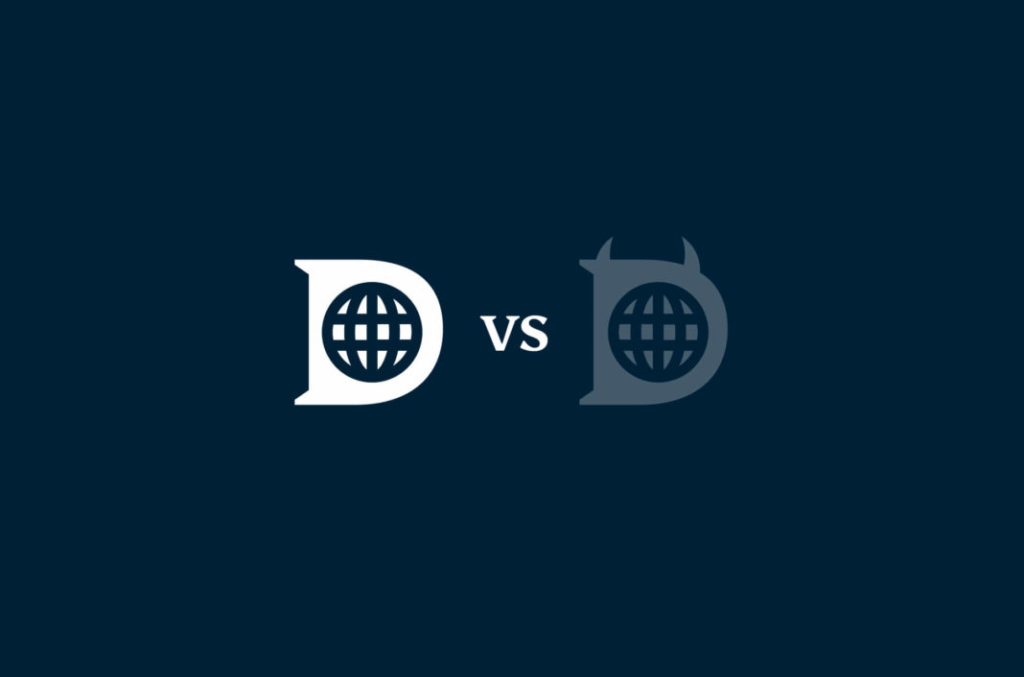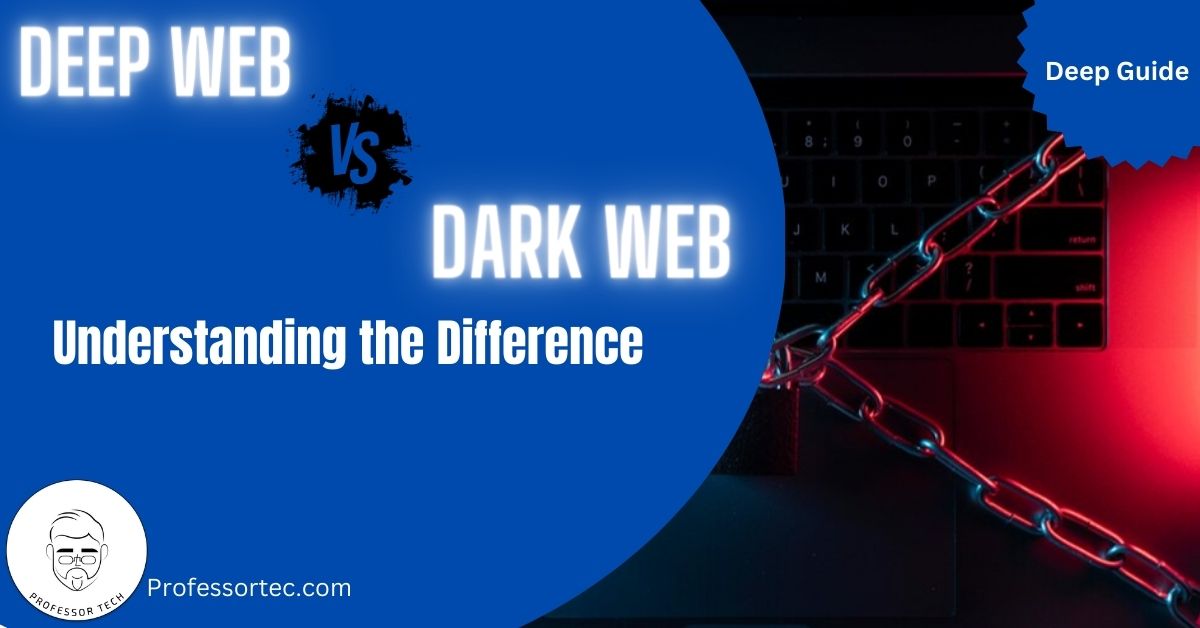
Introduction
In the realm of the internet, terms like “Deep Web” and “Dark Web” often generate intrigue and confusion. While they are sometimes used interchangeably, they refer to distinct parts of the online landscape with varying degrees of accessibility and legality. Understanding the fundamental differences between the Deep Web and the Dark Web is crucial for navigating the digital world safely and responsibly.
What is the Deep Web?
Definition
The Deep Web encompasses all internet content that isn’t indexed by traditional search engines. This includes databases, private social media profiles, subscription-based content, and other resources that aren’t easily accessible through a standard web search.
Examples
Examples of Deep Web content include academic databases, password-protected websites, and confidential company intranets. These resources contain valuable information but require specific permissions or credentials to access.
What is the Dark Web?
Definition
In contrast to the Deep Web, the Dark Web refers to a small portion of the internet that is intentionally hidden and inaccessible through standard web browsers. It is often associated with illicit activities and anonymous communication channels.
Examples
The Dark Web hosts various illegal marketplaces, forums, and communication platforms where users can engage in activities such as drug trafficking, hacking, and the exchange of stolen information. Platforms like Tor, I2P, and Freenet facilitate access to the Dark Web while preserving user anonymity.
Distinguishing Features
Accessibility
While the Deep Web comprises a vast amount of content that is simply not indexed by search engines, the Dark Web is intentionally hidden and requires specialized software to access. Users typically use anonymizing networks like Tor to navigate the Dark Web anonymously.
Content
The Deep Web contains legitimate, albeit hidden, content such as private databases and academic resources. In contrast, the Dark Web is notorious for hosting illegal activities, including the sale of drugs, weapons, and stolen data.
Users
The Deep Web is frequented by researchers, academics, and individuals seeking access to restricted information. On the other hand, the Dark Web attracts a diverse range of users, including cybercriminals, activists, journalists, and individuals seeking anonymity for legitimate reasons.
Usage
While the Deep Web serves legitimate purposes such as preserving privacy and protecting sensitive information, the Dark Web is primarily associated with illicit activities. However, it’s essential to recognize that not all Dark Web users engage in criminal behavior. Some individuals utilize the anonymity of the Dark Web for whistleblowing or political activism.
Legal and Ethical Implications
Deep Web
The Deep Web raises legal and ethical considerations regarding data privacy and access restrictions. Organizations must balance the need for security with the principles of transparency and accountability when managing sensitive information.
Dark Web
The Dark Web poses significant legal challenges due to its association with criminal activities. Law enforcement agencies around the world actively monitor Dark Web marketplaces and forums to combat illegal transactions and protect public safety.
Security and Privacy
Risks
Both the Deep Web and the Dark Web present security risks for users. Malicious actors may exploit vulnerabilities in anonymizing networks to conduct cyber attacks or distribute malware. Additionally, engaging in illegal activities on the Dark Web can result in legal consequences.
Precautions
To mitigate the risks associated with accessing the Deep Web or Dark Web, users should exercise caution and adhere to best practices for online security. This includes using reputable anonymizing tools, maintaining updated antivirus software, and avoiding suspicious websites and downloads.
Myths and Misconceptions
Despite their prevalence in popular culture, the Deep Web and the Dark Web are often misunderstood. Common myths include the belief that the Deep Web is exclusively used for illegal activities or that accessing the Dark Web is inherently illegal. In reality, both environments serve diverse purposes, and not all users engage in unlawful behavior.
Conclusion
In summary, the Deep Web and the Dark Web represent distinct aspects of the internet landscape with unique characteristics and implications. While the Deep Web encompasses hidden content that is not indexed by search engines, the Dark Web is a secretive enclave associated with illicit activities and anonymity. By understanding the differences between these two realms, internet users can navigate the digital world more effectively and protect themselves from potential risks.
FAQs
- Is it illegal to access the Deep Web? Accessing the Deep Web itself is not illegal, as it consists of content that is simply not indexed by search engines. However, engaging in illegal activities on the Deep Web is against the law.
- Is it safe to access the Dark Web? Accessing the Dark Web can pose significant security risks, as it is often associated with criminal activities and malicious actors. Users should exercise caution and take appropriate precautions to protect their privacy and security.
- Can I get in trouble for using Tor or other anonymizing networks? While using Tor or similar anonymizing networks is not inherently illegal, engaging in illegal activities while using these networks can lead to legal consequences. It’s essential to use such tools responsibly and adhere to the law.
- Are there legitimate uses for the Dark Web? Yes, there are legitimate reasons for accessing the Dark Web, such as preserving anonymity for whistleblowing, political activism, or accessing information in countries with strict internet censorship. However, users should be aware of the potential risks and legal implications.
- How can I protect myself while accessing hidden parts of the internet? To protect yourself while accessing the Deep Web or Dark Web, it’s crucial to use reputable anonymizing tools, keep your software updated, avoid clicking on suspicious links, and refrain from engaging in illegal activities.



